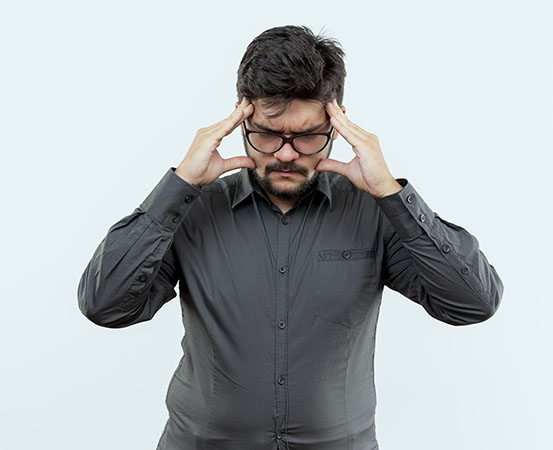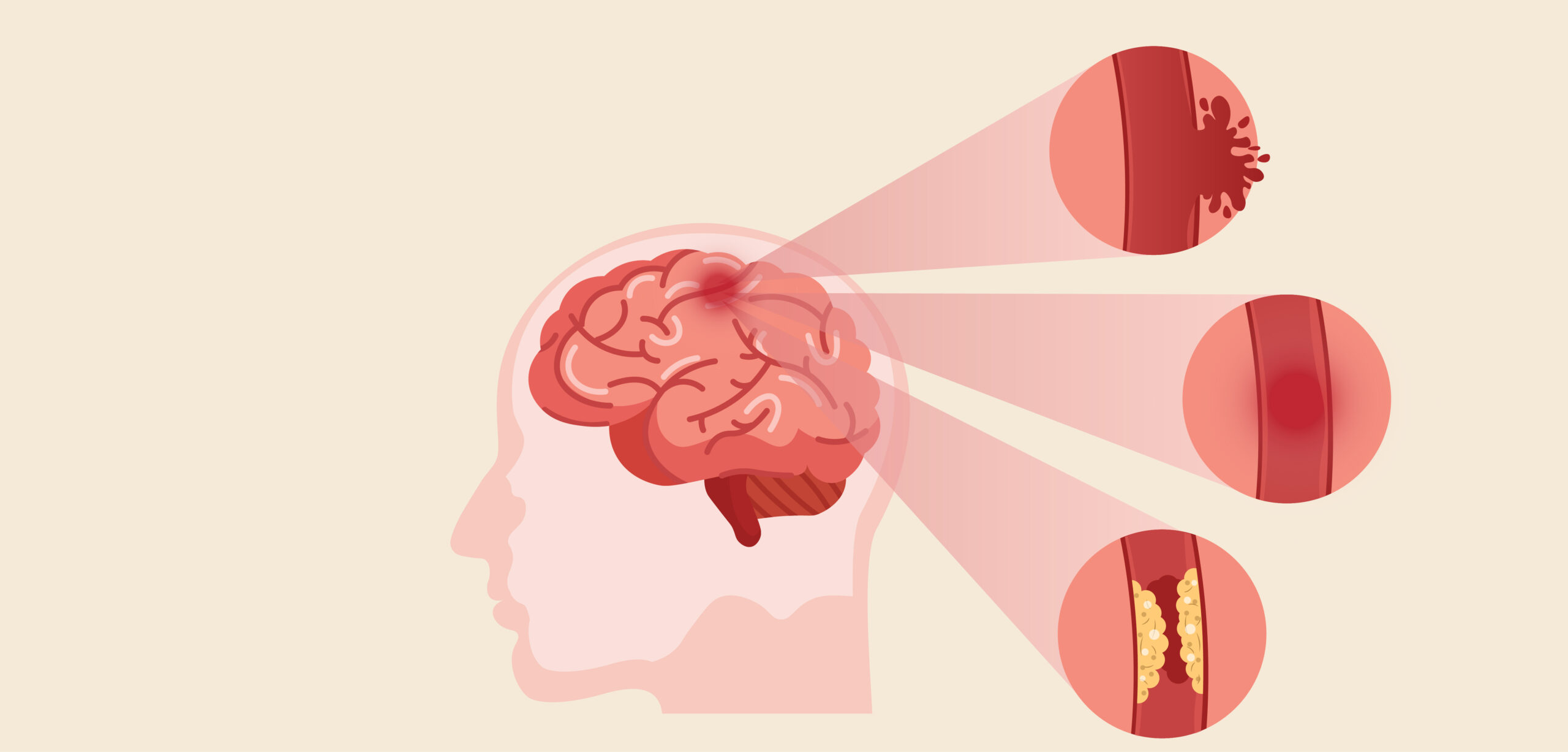
Rising cholesterol levels cannot just lead to heart problems but also raise the risk of stroke. Cholesterol is an essential fatty acid involved in the body’s metabolism and hormone synthesis. There’re different sub fragments of cholesterol. There are LDL (low density lipoprotein) and VLDL (very-low-density lipoprotein), triglycerides which are bad cholesterol and HDL (High-density lipoprotein), which is good cholesterol. But when their levels increase (especially non-HDL cholesterol), it could cause heart attacks and strokes.
Dr Sanjay Bhat, senior consultant – Interventional Cardiology, Aster CMI hospital, Bangalore, says the non-HDL or bad cholesterol can contribute to thickening of the arteries due to buildup of plaque, which is called atherosclerosis. If it starts affecting the blood flow to the brain, it can cause stroke.
Stroke is a neurological condition caused by a problem in the blood supply to the brain. There are two types – ischemic stroke and hemorrhagic stroke. Dr. Rohit Pai, consultant neurologist, KMC Hospital, Mangalore says, 85 percent of the stroke is ischemic, and 15 percent is hemorrhagic stroke or brain hemorrhage.
Causes of a stroke
Dr Pai explains hemorrhagic stroke or brain hemorrhage is usually due to uncontrolled blood pressure, which causes the blood vessels to burst, leading to blood leak in the brain. “Ischemic stroke is due to blockage in blood vessels that supply blood to the brain. It is due to atherothrombosis (clot formation in arteries as result of atherosclerosis) or cardioembolic stroke where a clot forms in the heart and spreads to the brain. It can be due to various reasons like valvular heart disease, prosthetic heart walls and atrial fibrillation (irregular heart rate), which predisposes the clot formation in the heart and then spreads to the brain,” he says.
The common risk factors for stroke include:
- Old age
- Diabetes
- Hypertension
- Smoking
- Alcohol
- Chronic kidney disease
- Elevated cholesterol
Cholesterol and stroke risk
Ideally, Dr Bhat says the LDL-HDL ratio and total cholesterol to HDL ratio should be less than 5. “The LDL levels should be less than 100 mg/dL and less than 50 mg/dL for those with a history of stroke,” he says.
Dr Pai says the risk of stroke due to high cholesterol has a direct correlation with cardiac events. “If there is high cholesterol, there is predisposition to atherothrombosis, leading to thickening of the blood vessels and then stroke,” he says.
Causes of high cholesterol
Dr Bhat says the cause of high cholesterol is multifactorial. “It could be genetic makeup or familial hyperlipidemia where people have high levels of LDL and triglycerides. These factors play a role in hardening the arteries,” he says.
He adds there are no signs or symptoms of high cholesterol until it leads to atherosclerosis.
Does lowering cholesterol prevent stroke?
Lowering cholesterol can help decrease the risk of ischemic stroke. Apart from lifestyle modifications, experts sometimes also recommend medications to lower cholesterol levels.
Dr Pai says one with the history of prior stroke or heart disease with the LDL cholesterol of more than 100 mg/dL, is prescribed medications to reduce the risk of stroke. “If one has had ischemic stroke or TIA (Transient ischemic attack), with no known coronary artery disease or major cardiac diseases, should maintain LDL cholesterol less than 70 mg/dL to reduce the risk of major cardiovascular or cerebrovascular events. High triglyceride levels should also be addressed. People with history of stroke and fasting triglycerides of 135 to 499 mg/dL, and LDL of 41 to 100 mg/dL are given higher dose of medicine,” he says adding that it is important to look at the entire history of health, rather than just the episode of stroke.
Dr Pai says within 4 or 4.5 hours of stroke, revascularization procedures or thrombolysis or thrombectomy are done to prevent complications. Thrombolysis is an injection which is given intravenously and thrombectomy is a procedure where the doctor does an intervention and removes the clot in the blood vessel. Stroke has a high chance of morbidity rather than mortality unlike in cardiovascular diseases. “It can make one bedridden, causing a burden to the caregiver. Depending on the part of the brain that is affected, it can also cause memory loss, vision defects, speech issues or apraxia (unable to carry out activities despite physical ability to do so) like forgetting to brush teeth or wear clothes,” he says.
Ways to lower cholesterol levels
Experts suggest the following measures to help reduce cholesterol levels and reduce risk of stroke:
- Regular exercises
- Consume low-fat diet
- Avoid carbs
- Avoid fried foods
- Avoid trans fats and saturated fats
- Avoid reusing the same oil
- Avoid smoking and alcohol
- Have nuts like walnuts, almonds and pistachios
- Consume food rich in omega-3 fatty acids
- Medications on doctor’s prescription
Takeaways
- High cholesterol can add to the risk of stroke.
- It leads to clot formation in the arteries, which can affect the blood supply to the brain.
- There are no symptoms of high cholesterol.
- Stroke can cause memory loss, vision issues, speech impairments and make one bedridden, depending on the part of the brain that is affected.
- Lowering cholesterol can help decrease the risk of ischemic stroke. Apart from lifestyle modifications with regular exercises and healthy diet, experts may also recommend medications to lower cholesterol.

















